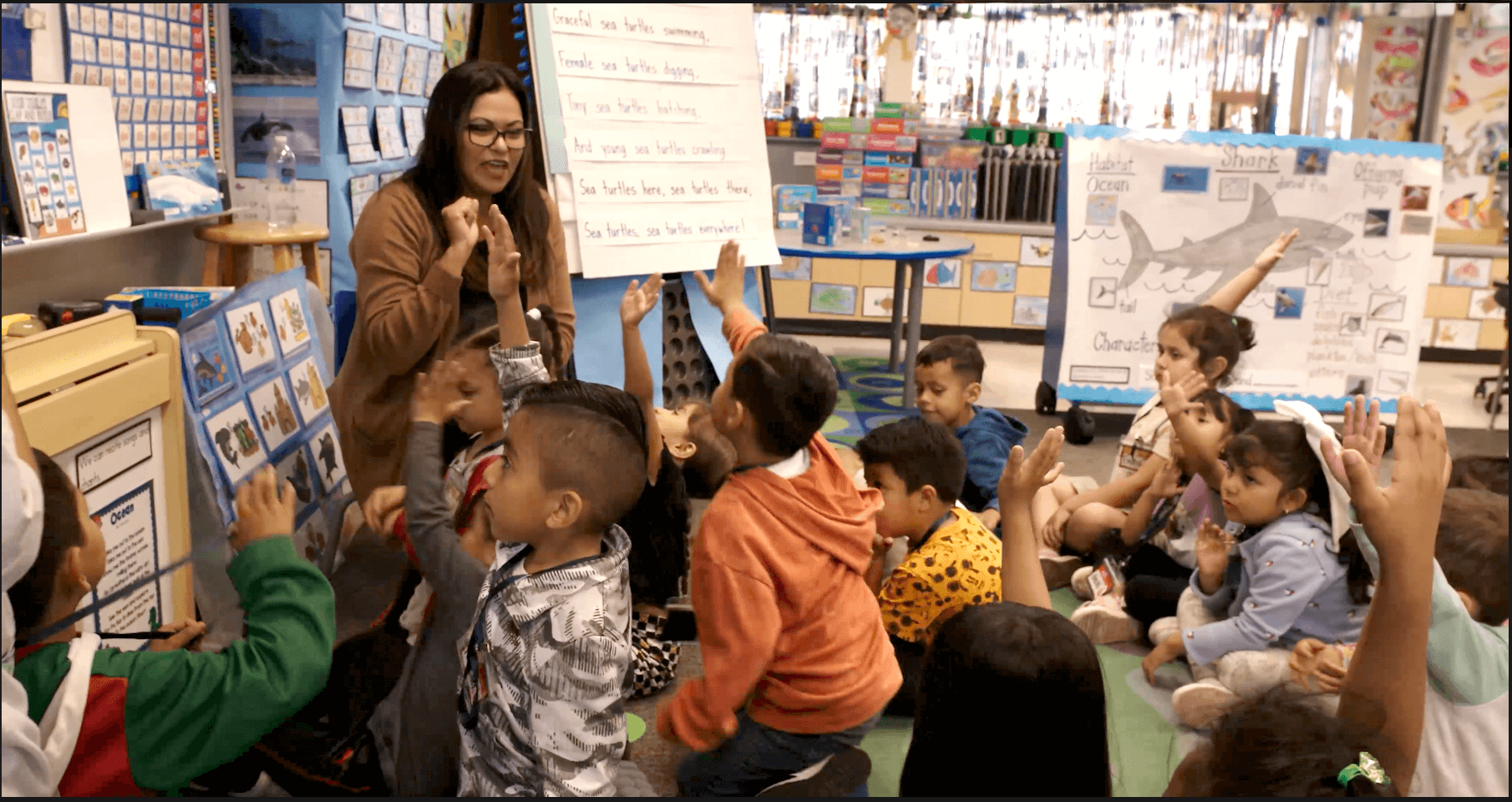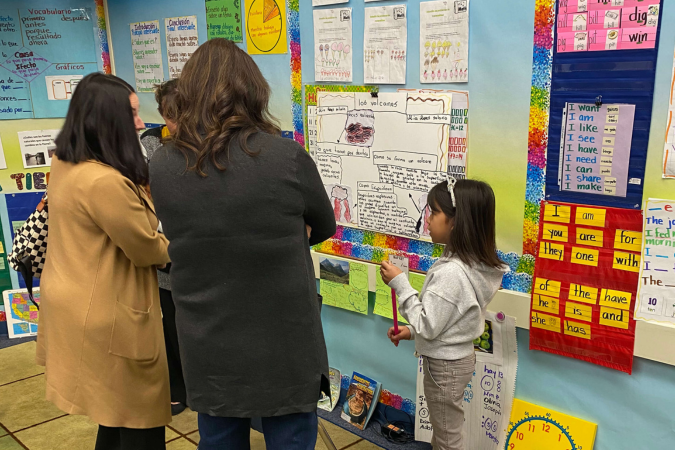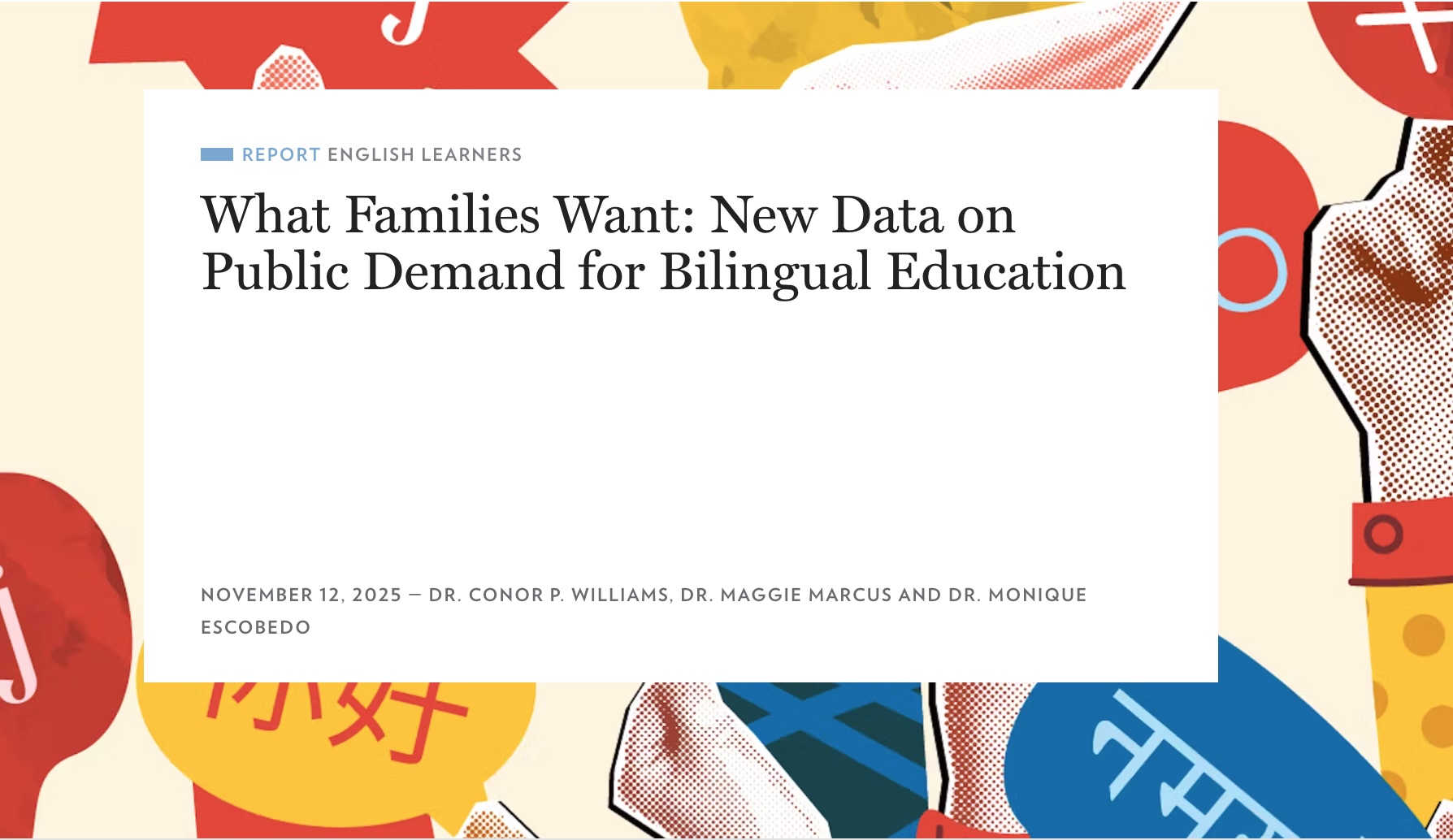
Testing Four-year-old CA Dual Language Learners Causes Anxiety and Concern
New America Blog Highlights Anxiety and Concerns in Testing TK Four-year-old Dual Language Learners
Sarah Jackson's insightful New America blog sheds light on the challenges surrounding the assessment of English proficiency in California's Transitional Kindergarten (TK) program. Jackson delves into the complexities arising from the clash between federal mandates required to assess and evaluate the English proficiency of students who speak a different language at home when enrolling in public schools and the practical and developmental realities of young TK students, particularly four-year-olds. She highlights the tension between standardized curriculum demands, the unique needs of these young learners and the “anxiety” of both teachers and students from the “required high-stakes testing.”
Nearly 60% of young children in California speak a language other than English at home.
Central to Jackson's discussion is California’s English Language Proficiency Assessments (ELPAC) - which are designed for older students and often fail to account for the developmental stage of four-year-olds. The test demands skills—reading, writing, listening, and speaking—that most young children are yet to master. It includes elements unfamiliar to many, exacerbating the challenge for young students already grappling with the transition to formal education.She emphasizes the potential detrimental effects of this mismatch, including the unfair labeling of students and concerns about overidentification as English learners which may affect teacher expectations and instructional approaches.
Jackson writes "All four-year-old’s, educators say, are working on building oral language and vocabulary. Most children of this age are just beginning to recognize letters, but not forming words or sentences yet. Four-year-old’s are also working on getting used to being in school, learning to follow instructions, and having back and forth conversations with peers. For children of this age who may be dual language learners (DLLs), students are building those skills in their home language as well as English."
Jackson interviews various CA school leaders including SEAL partners such as Oak Grove School District, Early Edge California and San Mateo County Office of Education.
However, Jackson doesn't just highlight problems; she also highlights potential solutions identified by advocates and educators.
Jackson writes “Advocates and educators have been pushing the state to develop asset-based approaches to identifying multilingual children in order to best support their success in school. The state preschool program, for example, which serves children in a similar age group, has a brand new process for identifying students who are dual language learners.”
A current proposed CA bill – AB 2268 – authored by Assemblymember Al Muratsuchi and co-sponsored by Early Edge California, Californians Together and CABE, would exempt TK students from taking the state's English proficiency exam. SEAL supports this bill.
Jackson quotes Carolyne Crolotte, the director of dual language learner programs for Early Edge California.
“We want to find a solution that is developmentally appropriate, that supports children's bilingual development and that maintains spending levels that will support children’s needs,” Crolotte said.
Jackson's blog can serve as a call to action for everyone committed to education - policymakers, educators, and stakeholders - to work collaboratively towards ensuring equitable assessment practices in TK programs. By prioritizing the developmental needs of young learners and investing in appropriate assessment tools, California can pave the way for a more inclusive and effective educational system for all students.
Photo by Sarah Jackson
Read More News from SEAL

Learn about changes in policy, up-to-date research, and unique practices to support Dual Language and Multilingual Learners. And don’t forget to sign up for our newsletter here.
%201.svg)


